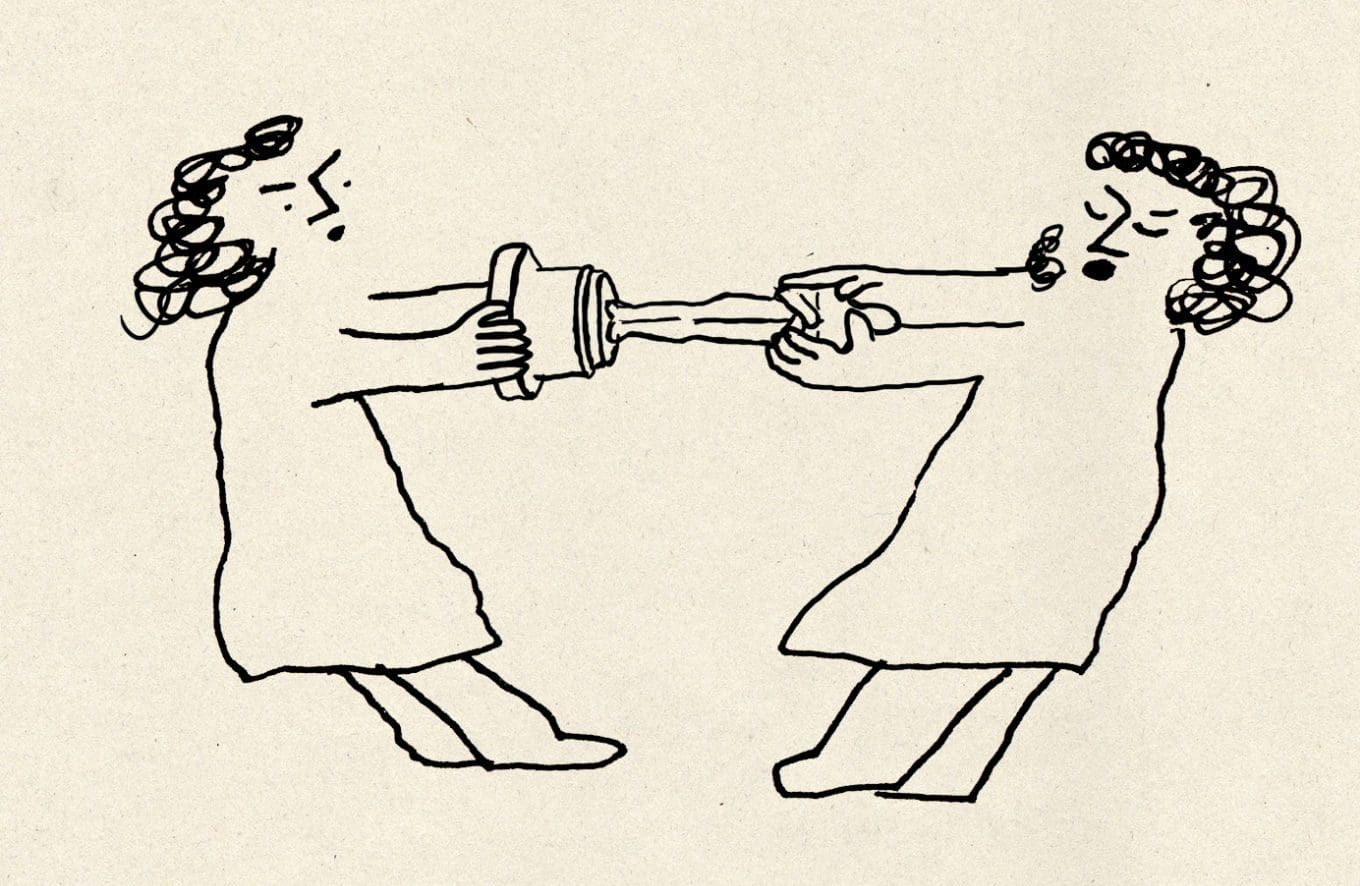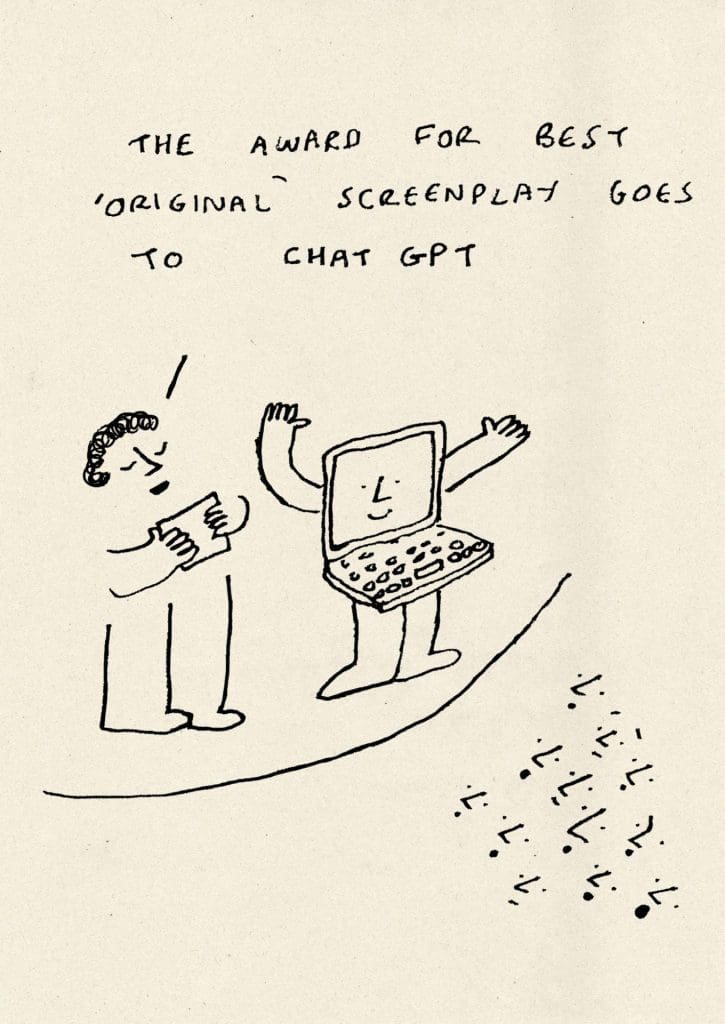
So you’ve seen memes of ‘The Slap,’ were shocked by that La La Land–Moonlight mix-up and can quote from the #OscarsSoWhite Tweets—so then, what else? Here’s what: Some earlier Oscars scandals and shockers that marked the Academy Awards over the course of its nine eventful decades. Grab the popcorn and buckle in.
1942: The battle of the sisters
A lifetime of bad faith came to a head at the 14th Academy Awards. While history remembers that ceremony as the night that humbled Orson Welles—where the Academy hoisted John Ford’s How Green Was My Valley—as a pointed rebuke to Citizen Kane—those in the room were more keyed into the psychodrama playing out between best actress nominees Joan Fontaine and Olivia de Havilland. They were siblings, after all, though neither had a kind word to spare. Instead, the unhappy duo invited those present to share in their blood feud. Olivia de Havilland openly scowled as her lifetime rival collected that night’s best actress honour—while the Gone With The Wind star would claim her own four years later. The pair would never reconcile, while the contemporary press came to label that night “The Battle of the Sisters.”
1955: A star is born
Everyone and anyone could tell you that Judy Garland was a lock for that night’s best actress. At only 32 years-old, Garland was already an icon—a child star turned showbiz prodigy for whom singing, dancing and acting came with equal aplomb. The pint-sized tornado had never been nominated in a competitive category (she had claimed a so-called Juvenile Oscar back in 1939) so when George Cukor’s A Star is Born came around, the race was pretty much called. Having given birth just hours before, the star greeted a camera crew in her hospital bed. As the crew set up the lights and prepared the live-feed they waited to hear… Grace Kelly named the night’s surprise winner. With that, the lights went off and the crew left Garland to her natal bed, packing up the statuette they were dispatched to bestow. She would be nominated once more, but would never put her hands on the gold.

1957: The Trumbo triumph
In 1997 and 2008, a craftsman named Roderick Jaynes was nominated for best editing. In neither year the editor showed up—nor could he, as he was (and remains) a fictional construct and alias of filmmakers Joel and Ethan Coen. Though Jaynes was never called up for “his” work on Fargo and No Country for Old Men, such was not the case in 1957 when screenwriter Robert Rich won for The Brave One. In the weeks and months following the ceremony, Hollywood and the press tried to track down that year’s no-show winner, only to learn, almost two years later, that the award had actually been won by blacklisted screenwriter Dalton Trumbo. Ironically, this was the second time Trumbo pulled off such a feat, having previously won (under another front) for 1953’s Roman Holiday. In 1960, Trumbo’s real-name credit on Spartacus helped break the blacklist for good.
1973: Brando’s Littlefeather scandal
Marlon Brando’s performance in The Godfather would go down in film legend—as would his (non) acceptance speech. 1973’s best actor winner did not show up, sending in his stead Indigenous activist Sacheen Littlefeather to collect the award by calling out Hollywood’s racist shame by way of Native American depiction. John Wayne bubbled over with rage while watching in the wings, allegedly restrained by a retinue of security guards preventing a violent outburst onstage or off. The speech—and the vituperative reaction it inspired—caused a scandal back in the day; and then, years later, came the allegations that Littlefeather only pretended to be Native American. Was the rejection an earnest cri-du-coeur or a bit of meta performance from one of the greatest actors of the 20th century? Why not both?
You might also like: The King and the Queen: the wild love of Clark Gable and Carole Lombard
1974: Nothing to hide
Times were tough for our most ambitious exhibitionists in the years before social media—just take a look at the infamous Oscar streaker. In order to broadcast his talents for the world, gallery owner Robert Opel had to sneak into the Dorothy Chandler Pavilion disguised as a journalist before hanging back for nearly three-and-a-half hours, waiting to pounce at that opportune moment ahead of that night’s best picture (The Sting, if you were wondering). And then out he came, clad in nothing but a moustache and a smile, interrupting presenter David Niven’s pompous remarks about the magic of the movies with something delightfully unexpected. Startled into action, Niven dropped his canned speech and improvised on the fly, delivering a memorable retort that the only laugh Opel would ever get, “is by stripping off and showing his shortcomings.” The media delighted, but Opel had the last laugh when wrangling his newfound notoriety into a stunt presidential campaign. His slogans? “Not Just Another Crooked Dick” and “Nothing to Hide.”
1978: Vanessa Redgrave takes a stand
If the 1970s were a sui generis decade for Oscar controversies, many of them still echo. Take Vanessa Redgrave, whose 1977 output included the World War II era biopic Julia and a short documentary sympathetic to the Palestinian cause called The Palestinian. The latter was enough to draw the ire of Israeli activists, who burned Redgrave’s image in effigy outside of that year’s red carpet. Inside, the actress returned the volley with her acceptance speech, thanking the voters for standing against “the threats of a small bunch of Zionist hoodlums whose behaviour is an insult to the stature of Jews all over the world.” As fate would have it, Redgrave’s was the first prize of the night, galvanising the 50th Academy Awards right from the jump. Later, Network creator Paddy Chayefsky called Redgrave out by name when announcing the screenwriting prize, voicing his disdain for the Julia star with a cold fury shared by the countless attendees who greeted the winner with a cold shoulder. The star’s reputation would recover, of course, while the fault lines she exposed still endure.
1989: Oscar’s lowest moment
When it comes to the Oscars, no one’s adverse to a couple of dud bits and a dose of bad taste—only few were prepared for the nonstop, 15-minute barrage that inaugurated the 1989 ceremony. Near instantly earning the reputation as Oscars’ Lowest Ebb, the telecast replaced an opening monologue with a song-and-dance routine that paired a lecherous Rob Lowe against a panic-struck unknown dressed as Snow White. Neither wanted to be there, neither could particularly carry a note and neither could get one over on a painful cover of Proud Mary retooled for the big event. “Used to work a lot for Walt Disney,” came a high-pitched warble. “Starring in cartoons every night and daaaaaaaaaaaaay.” “Klieg lights keep on burning, cameras keep on turning,” Lowe then growled alongside a Carmen Miranda impersonator and a retinue of dancing tables. Did the kitschy display culminate in a chorus line dressed as cinema ushers high-kicking it to “Hooray for Hollywood?” You bet it did. Did the cameramen ever once cut back to an aghast audience? Well of course not.
1999: Celebration of the informer
Here’s an instance where the audience reaction did play a role—capping an outrage that had already flared for five decades. In 1952, Elia Kazan named names before the House Un-American Activities Committee, earning a spot of everlasting ignominy in the eyes of many blacklisted colleagues. In 1955—the very same night Judy Garland sat dumbstruck in her hospital bed—Kazan returned to the Oscar podium to win best director for On the Waterfront—a film Orson Welles later described as “a celebration of the informer.” And in 1999, Kazan faced weeks of op-ed ire and then braced the protesters and counter-protesters who raged outside of the Dorothy Chandler Pavilion to receive that night’s Special Lifetime Achievement Oscar. While Robert De Niro and Martin Scorsese presented the award, Nick Nolte, Ed Harris and Steven Spielberg kept to their seats in a bout of stony-faced protest captured for the global stage. Kazan would die in 2003—four years after a public farewell he punctuated with simple words. “Thank you all very much,” said Kazan. “I think I can just slip away.”
Featured image: Cartoon by Orfeo Tagiuri (@orfayo)





